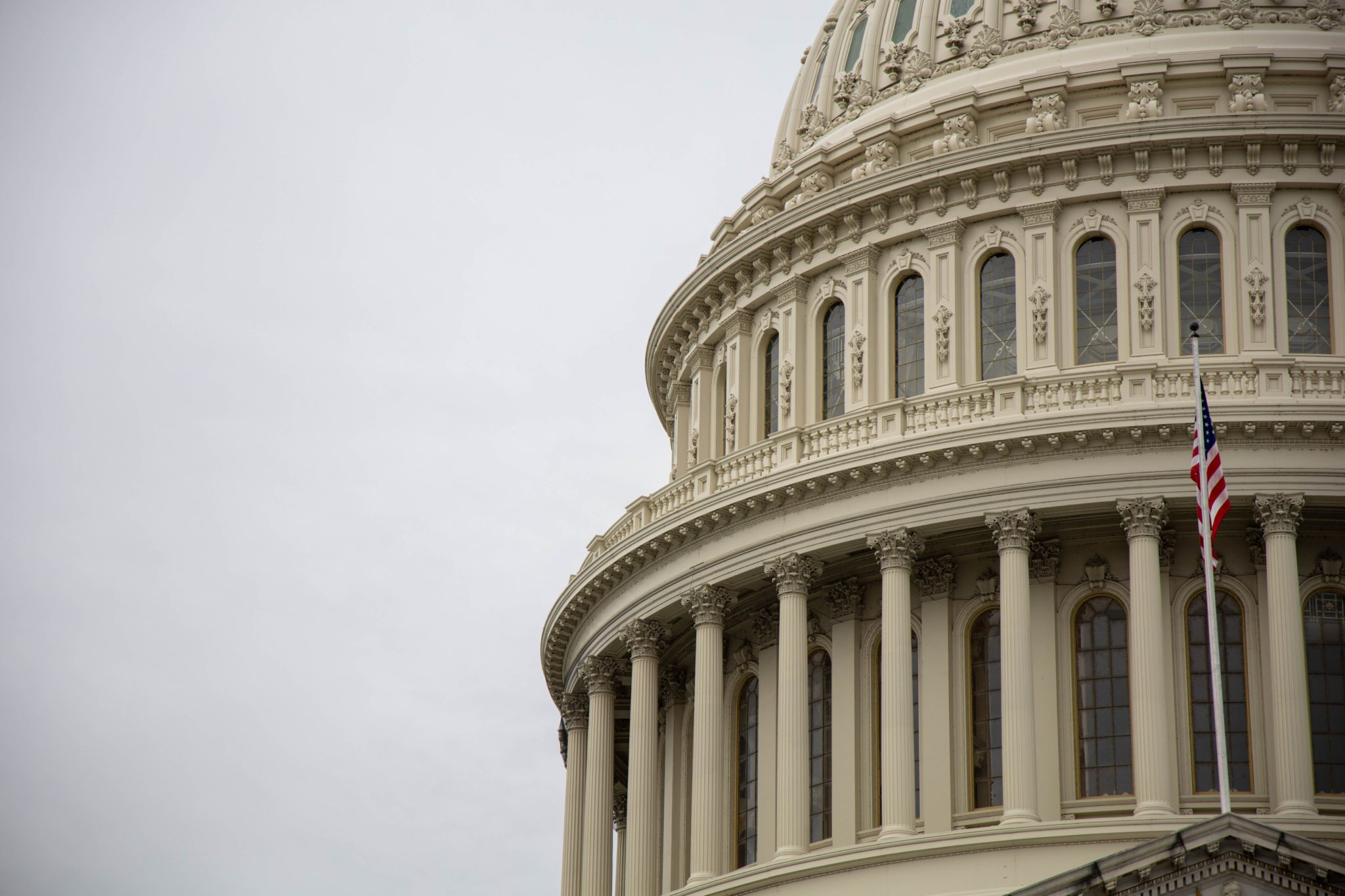On November 14, 2017, Independent Sector sent the following letter to the Senate Finance Committee on their tax reform bill, the Tax Cuts and Jobs Act.
RE: Charitable Sector Response to Senate Tax Reform Proposals
Dear Chairman Hatch and Ranking Member Wyden:
Independent Sector writes to express our concern that the Senate Tax Cuts and Jobs Act jeopardizes charitable organizations and the communities we serve. Independent Sector is a national, nonpartisan coalition of public charities, private foundations, and corporations, that represents a network of tens of thousands of charitable organizations across the country. We work to ensure that America’s 1.6 million charitable organizations are able to help people and improve communities across the country and around the world.
Independent Sector supports the creation of a federal tax code that:
- Protects and promotes the freedom to form, fund and operate independent institutions that pursue the public good;
- Ignite a great American tradition of charitable giving and volunteering; and
- Does not increase the burdens on America’s most vulnerable populations.
Because H.R. 1, recently approved by the House Ways and Means Committee, fails to accomplish these goals, Independent Sector strongly oppose the House’s tax reform effort that we believe threatens to unravel civil society in America.
We recognize and appreciate that the Senate bill does not include some of the most damaging provisions from H.R. 1, but we remain concerned that its net effect undercuts charities and their ability to respond to community needs. The bill removes incentives to give and raises taxes on charities to fund additional tax cuts. Cutting off vital resources to charities will disrupt service delivery, increase need, and halt efforts to create innovative solutions to community problems. It would mean less funding for private food banks, homeless and domestic violence shelters, daycare, and job training.
The negative impact of tax reform extends beyond the direct services charities provide. Tax policy that hurts charities also negatively impacts the economy. The charitable sector is a critical component of the nation’s economy. Nearly one in 10 workers in the United States is employed by a nonprofit organization, and with 11.4 million paid workers, we are the third largest workforce in the country behind only the retail and manufacturing industries. These organizations pay nearly $532 billion annually in wages and benefits, salaries that support families in communities across America. In addition, 62.8 million Americans contributed more than 8.7 billion hours of volunteer service to a formal organization, the equivalent of 5 million full-time jobs valued at approximately $179 billion. If we further account for volunteer service across this country, the charitable sector, in some way, touches almost 25 percent of all Americans. The current Senate bill cuts critical revenue to charitable organizations, which will result in job loss, not job growth.
The Senate Finance Committee still has the opportunity to correct problems with the bill through the amendment process. Independent Sector and our partners are ready to support Committee members in this process. Included below is a list of responses to specific proposals in the Senate bill or may be under consideration in the amendment process.
- Charitable Deduction
The Senate bill drastically limits the charitable deduction rather than expanding it to all taxpayers by way of a universal charitable deduction. On the 100th anniversary of the charitable deduction, it is time for the tax code to incentivize all Americans to give more to charity. The bill actually moves our country in the wrong direction.
Rather than encourage more people to invest in their communities, this bill turns the charitable deduction into a tax benefit only for the wealthiest households and reduces giving by billions of dollars a year. By raising the standard deduction and not adding the universal deduction, you will effectively cut off up to 95 percent of Americans from access to the only tax incentive that is altruistic.
An analysis by Indiana University conservatively estimates that the bill would reduce charitable giving by at least $11 billion each year. Adding a universal deduction will extend charitable giving incentives to all taxpayers and create a fair, streamlined solution. It can recoup giving loss due to other provisions and even increase giving by $6 billion each year.
We support the Wyden/Stabenow amendment to expand the charitable deduction to all taxpayers or other similar amendments as may come out of the committee.
- Estate Tax
We are grateful that the Senate bill preserves the estate tax. However, doubling the current exemption will negatively impact charitable giving, since the tax serves as a strong incentive for wealthy households to give more of their estate to charity. Independent Sector historically supports preserving the estate tax at current levels.
- Political Activity
The Senate bill rejects the House bill’s total assault on the Johnson Amendment, which protects the independence and integrity of the charitable sector. The House bill opens up charities to become an instrument of electoral politics and allows individuals to abuse the charitable deduction. The Joint Committee on Taxation recognizes that this bill may encourage political donors to funnel some political gifts through charities in order to claim the charitable deduction. Ambiguous legislative terms, like “de minimus,” leave charities open to increased financial disclosure requirements and subjective scrutiny by the IRS.
All of this fall out could jeopardize the future of the charitable deduction, donor privacy and the public’s trust in charities. Please continue to ensure that the current protections of the Johnson Amendment remain intact.
Along the same lines, Independent Sector opposes the inclusion of the Roberts Amendment #7 in tax reform. One of the most important protections of the charitable deduction is the assurance that the government subsidized gifts are directed in their entirety to serving the common good. Only 501(c)(3) charities are able guarantee donations will be used in this way, because they are prohibited from engaging in partisan political activity. The Roberts Amendment proposes to extend this benefit beyond public charities to allow tax-deductible gifts from estates to other types of organizations.
This provision is another means of opening the door for charitable donations to be misused for the purposes for politics rather than the greater good. Consequently, Independent Sector strongly opposes the Roberts Amendment #7 proposal to allow estates to make tax-deductible gifts to nonprofits other than 501(c)(3) organizations.
- Unrelated Business Income Tax (UBIT)
The Senate bill proposes two provisions that will raise taxes on charities and negatively impact their capacity to raise critical revenue to pursue their missions. Changes in the economy, increased competition, and decreased government funding have prompted charities to pursue a variety of activities to generate enough revenue to meet community needs. In some instances, charitable nonprofit organizations capitalize on opportunities that naturally arise from their day-to-day exempt operations. Charities also may invest in income-producing activities that are not directly related to their mission.
Two provisions included in the Senate bill could substantially increase the tax liability of public charities, reduce the funds available for their programs and services, and impede their ability to meet community needs. First, is a proposal to reclassify income from licensing a charity’s name or logo as subject to UBIT. The second provision would force charities to calculate separately their gains or losses on each business activity, which would prevent charities ability to use losses from one activity to offset the tax liability of another. IRS clarification prevents any challenges related to how charities calculate these figures, so this provision is not needed to prevent abuse. Both provisions increase taxes on legitimate market-based solutions that charities rely upon for revenue.
Independent sector opposes the inclusion of these provisions in a final tax reform bill. Tax reform should protect the critical resources charities use to advance the common good, which includes earned revenue.
- Executive Compensation
The Senate bill sets a limit on the full compensation charitable employees may receive. Competitive compensation is determined by Board of Directors comprised of community volunteers and constituents. We believe it is important for this type of decision-making authority remain with communities, rather than federal regulators. The sector follows established Principles for Good Governance and Ethical Practice to help boards determine fair, competitive compensation to attract and retain leaders that can tackle the most complex problems facing our communities.
Thank you for your consideration. We urge that consideration of any tax reform legislation recognize and account for the impact on charitable organizations and the communities we serve.
Independent Sector



